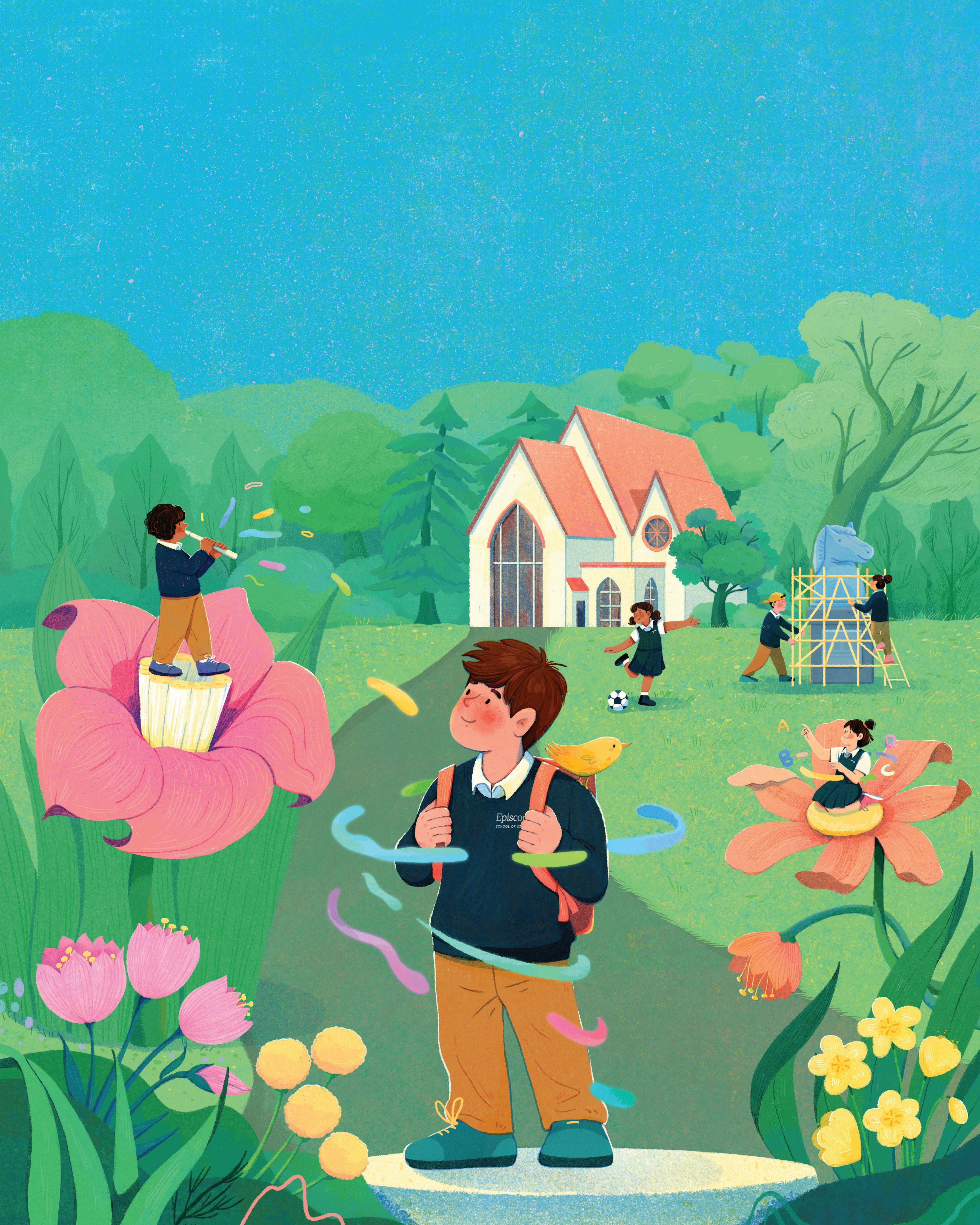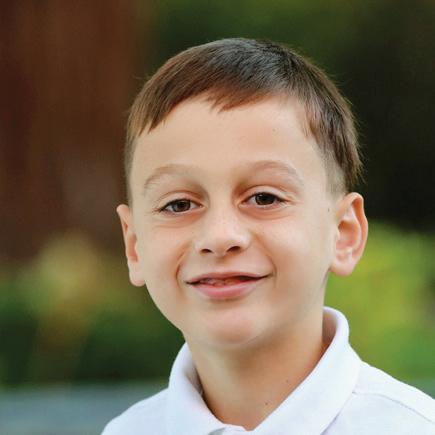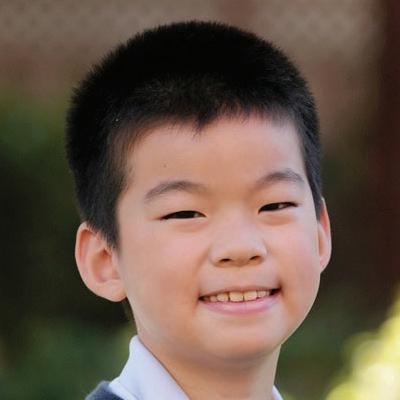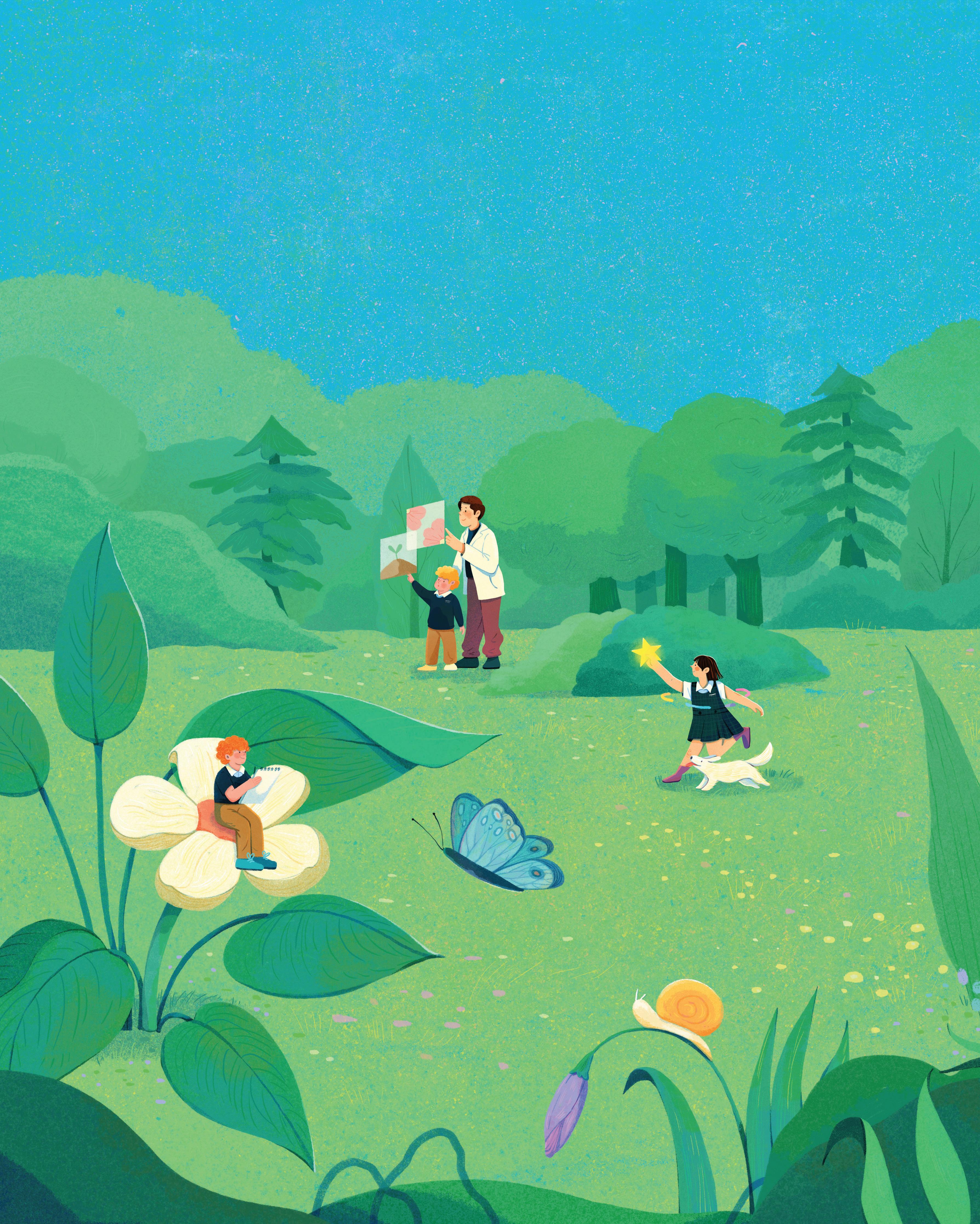
Brandon Kraft Associate Head of School for Academics


Brandon Kraft Associate Head of School for Academics
One of the best parts of my job is wandering into classrooms and witnessing the everyday magic of learning in action. Some days, I see students staring down the lens of a microscope. On others, they’re creating trading cards about Greek gods. The goal of all of these activities is to meet students at their Zone of Proximal Development. First developed by Lev Vygotsky and later integrated into Carol Dweck’s idea of a growth mindset, this Zone is the space where mental tasks are not too hard–leading to a sense of failure–or too easy–leading to slow mental growth. It’s much like building muscle—mental growth happens when the challenge is just right.
Like building muscle, brain development in the Zone of Proximal Development requires purposeful, planned, and dedicated work. This is what our teachers do every day. Demonstrating dedication to the craft of teaching, they methodically plan lessons to push our students to build their neural plasticity within the Zone.
Though a teacher’s work may often appear efortless, it’s anything but.
Teaching requires deep curiosity and commitment to transform a curricular idea into a meaningful classroom experience. To do this, our teachers consistently strive to get to the next level of good teaching. Sometimes, what I see in the classroom reminds me of one of my favorite Oprah quotes; “We can’t become what we need to be by remaining what we are.” I think this quote directly relates to our faculty’s motivation to make each classroom moment better than the last. To accomplish this, teachers rely on both internal and external professional development.
Since joining Episcopal Day School, I have seen the language of, “a community in conversation,” in action. Teachers are constantly discussing how best to push our students within their Zone. In fact, I have noticed that faculty can spend hours in these conversations. To engage more deeply in these conversations, EDS teachers and administrators develop internal professional development.
One aspect of our internal professional development includes our Math Specialist, Mary Kimbell. I have seen her adeptly structuring our lower school math groups throughout the year. These mixed groups allow students to further their development of our Standards of Mathematical Practice. Most notably, I have seen Mary work closely with our kindergarten teachers to build novel math groups. This has allowed for an individual-focused approach while keeping all students on track to go beyond algorithms towards becoming communicative problem solvers.
Sometimes professional development occurs through informal and surprising conversations. For instance, a casual lunch conversation with one of our learning specialists led to a deep dive into diferentiating grammar instruction in middle school. Teachers Brenda Ray and Kevin Wood are exploring the Writing Revolution, a research-based framework frst developed within the Windward School in New York and then later featured in The Atlantic. Most notably, the approach builds a student’s command of grammar from the sentence to the essay. Exposure to this

approach has inspired fresh strategies for grammar instruction and essay writing at our school. This approach allows every student to work within their Zone to become clear, confdent, and erudite writers.
Beyond these internal approaches, EDS invests heavily in its teachers by encouraging them to attend external conferences. I was lucky to attend the Summer Programs and Auxiliary Revenue Collaborative (SPARC) conference with our Director of Auxiliary Programs and Outdoor Education, Travis Mackin. At this conference, we both were able to learn how to leverage play as a way to explicitly build students’ socialemotional skills. We are using inspiration from this conference to build a summer program that is rooted in play and simultaneously develops students' academic skills.
EDS’s approach to external professional development leverages the power of collective growth. This year, a group of educators also attended the People of Color Conference (PoCC) in Denver,
Colorado. At this conference, everyone attended sessions that deepened their understanding of the skills required to further Episcopal Day's DEIB competencies. I noticed that many of us went to sessions focused on empowering students to engage in spectrum and systems thinking. Moreover, Artifcial Intelligence was a major focus at PoCC. Our learning on this topic is infuencing our AI Strategy.
Carol Dweck has said, “In a growth mindset, challenges are exciting rather than threatening. So rather than thinking, oh, I'm going to reveal my weaknesses, you say, wow, here's a chance to grow.” Our teachers live this excitement every day. They embrace professional development as a path to growth, resulting in an excitingly deep and complex academic program. EDS teachers know that internal and external best practices can only improve the conversations already occurring in our community.













eb in c e to eachother be tobe kind va e confidenc to have fun nlifeless alstrength




eaders worktogether as a team t o c o mmunicateourlearning rselves a r n ing to understandhow others thin wew e tobe getting smarter
For our inaugural Blue & Gold Pride Day this year, we asked students to write re be a Mustang. From friendship and courage to trying new things, their ideas show just how many ways there are to embody the Mustang spirit and why it is so special to be a Mustang. Being a Mustang means something di every student—and that’s what makes our community so special. Here, you get to be you!


“A moment that I will never forget as a Mustang is during May Day, they played the wrong track, but we kept dancing with big smiles on our faces anyway. That’s what being a Mustang is to me.”
Haley, Fifth Grade

“ Being a Mustang means to be kind and showing new people around. Go Mustangs!”
Evan, First Grade

“Mustangs fght for their beliefs, and they do so with love and compassion for themselves and others.”
Vana, Seventh Grade

“I like being a Mustang because the school is welcoming, and the school has kind students. I also like how everyone is unique, I feel supported and never left out. I like how the school cares about safety. I like how everyone is smart in their own way. That is what I like about being a Mustang. Go Mustangs!”
Cate, Fourth Grade

“ Being a Mustang shows who we are as humans. It shows how we treat people. It makes you feel brave to share your emotions. It is an inclusive environment and will always lift you up when you are down.”
Advik, Sixth Grade

“I like that my sisters go here. I get to see them during the day sometimes. My favorite thing is naptime, of course"
Remi, Pre-K

“Every kid in our school is kind and smart. Every kid is a Mustang down deep in their heart. They have their own day to fll with fun. I learn all day, and I’m sad when it’s done. Go Mustangs!”
Ellen, Second Grade

“Being a Mustang means spreading love”
Healy, Kindergarten

“Mustangs make others smile. A time I have seen someone show true Mustang spirit is Ms. Julien as a person. She saw me running to Chapel one time from the sidewalk, and she yelled “HI AUDREY” to me, and it made me smile.”
Audrey, Eighth Grade

“I think being a Mustang means you will be part of a community that is caring and helps each other like a family. For example, if someone gets hurt, someone else would go get them an ice pack or a band-aid. Being a Mustang will encourage you to be you! You don’t need to blend in, just be you! This is what I think makes a Mustang!”
Caleb, Third Grade
